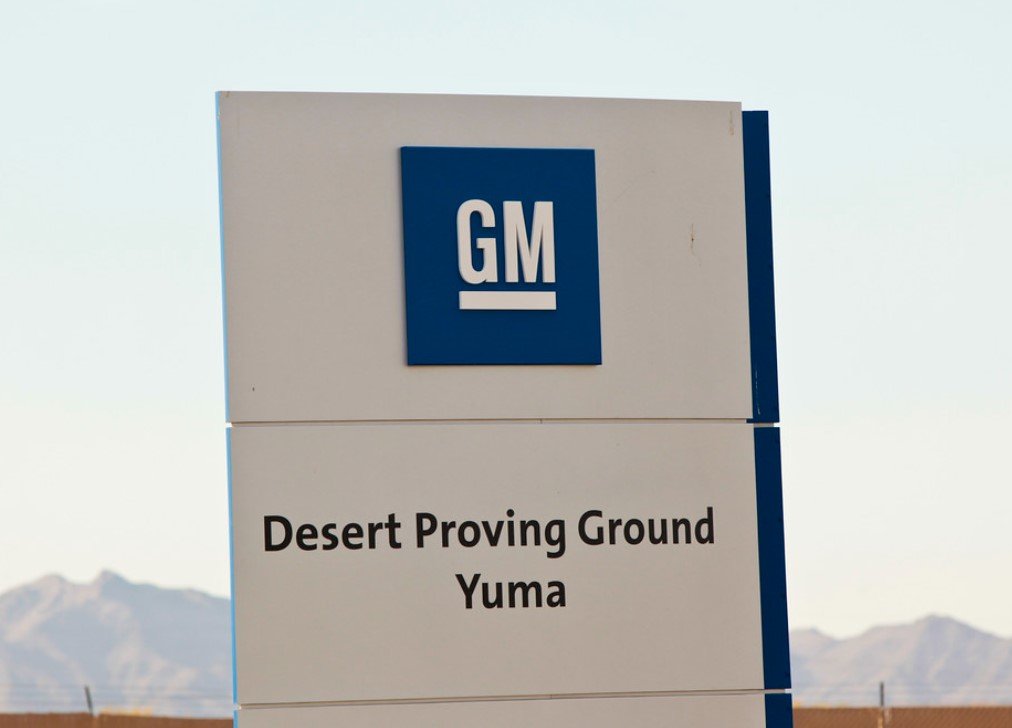General Motors made a startling announcement last Friday, revealing plans to lay off approximately 1,000 employees worldwide. This move is part of a broader effort to cut costs amid a turbulent period for the auto industry.
In Yuma County, the closure of GM’s Desert Proving Grounds means the loss of 33 local jobs. The facility, once a hub of innovation, will no longer operate in the area. It’s a tough blow for the community that relied on these positions for stability.
Kevin Kelly, GM’s senior director of corporate relations, explained the decision: “To win in this competitive market, we need to optimize for speed and excellence. This includes operating with efficiency, ensuring we have the right team structure, and focusing on our top priorities as a business.”
Last April, around 5,000 GM white-collar workers accepted buyout offers, a move the company claimed would prevent further layoffs. However, the recent developments suggest otherwise. GM employs about 150,000 people globally, with the majority based in Warren, Michigan. By the end of last year, they had 76,000 white-collar employees worldwide.
The future remains uncertain for many. The company previously stated that “involuntary separations are not a consideration at this point,” but recent actions tell a different story.
Impact of Industry Slump on Local Economies
The auto sector is facing a rough patch. Sales are down, competition from Asian carmakers is fierce, inflation persists, and supply chains are tight. These factors are not just numbers on a chart—they translate to real struggles for communities like Yuma.
Arizona’s economy, particularly in rural areas, has been hit hard. Local businesses that depended on the spending power of GM employees are now feeling the pinch. Restaurants, shops, and service providers are seeing fewer customers, leading to a ripple effect of economic downturn.
- Job Market: With major employers like GM cutting back, the job market tightens, making it harder for residents to find new opportunities.
- Community Services: Reduced tax revenue means less funding for essential services like schools and healthcare.
- Property Values: A decline in local employment can lead to decreased property values, affecting homeowners and the broader real estate market.
These challenges are compounded by the fact that rural areas often have fewer resources to support displaced workers. Retraining programs and job placement services are limited, leaving many without a clear path forward.

Workers React to Sudden Job Cuts
The news of layoffs has been met with shock and uncertainty among workers. For many, GM wasn’t just a job—it was a lifeline. The abrupt nature of the layoffs has left employees scrambling to secure new positions.
“I’ve been here for over a decade,” said Maria Lopez, a former engineer at the Desert Proving Grounds. “It’s devastating. I’m not sure what the next step is for me and my family.”
Support networks are crucial during such times. Community organizations are stepping in to provide assistance, but the demand often exceeds what they can offer. Emotional support, financial counseling, and job search help are all in high demand, but resources remain stretched thin.
Additionally, the stigma associated with layoffs can affect workers’ mental health and confidence. Employers elsewhere may view recent layoffs as a red flag, making it harder for affected individuals to find new opportunities.
Broader Implications for the Automotive Industry
The struggles in Arizona are a microcosm of the broader challenges facing the automotive industry. As automakers grapple with changing consumer preferences, technological advancements, and global competition, tough decisions like layoffs and facility closures become more common.
Supply chain disruptions have been a persistent issue. Shortages of key components, such as semiconductors, have slowed production and increased costs. This has forced companies to rethink their strategies and streamline operations to remain competitive.
Moreover, the shift towards electric vehicles (EVs) is reshaping the industry. Traditional automakers like GM are investing heavily in EV technology, but the transition requires significant capital and a reallocation of resources. This pivot can lead to workforce reductions in areas that are no longer aligned with the company’s new direction.
The impact of these changes extends beyond the automotive sector. Suppliers, dealerships, and ancillary businesses are all affected by the shifts in production and employment. As the industry evolves, so too must the communities that support it.
Looking Ahead: What’s Next for Arizona?
As Arizona faces these economic challenges, the path forward is uncertain. Diversification of the local economy could be key to building resilience against future downturns. Encouraging investment in other industries, such as technology, renewable energy, and healthcare, might provide alternative employment opportunities for residents.
Local leaders are calling for more support from state and federal governments. Investments in infrastructure, education, and workforce development are seen as essential to helping communities adapt and thrive in a changing economic landscape.
There’s also a push for stronger collaboration between automakers and local governments to create sustainable plans that benefit both the industry and the communities they operate in. Transparency and communication are vital to rebuilding trust and ensuring that future decisions are made with the well-being of workers in mind.
Rural Arizona is at a crossroads. The closure of major facilities like GM’s Desert Proving Grounds serves as a stark reminder of the vulnerabilities faced by communities dependent on a single industry. Moving forward, the focus must be on creating a more diversified and resilient economic base to safeguard against similar disruptions in the future.
















